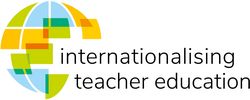Contact

Inclusion and multilingualism in teacher education
International online workshop 5-6 November 2020

This workshop is meant to raise awareness to inclusion and multilingualism in classrooms and to prepare students and future teachers for their work within diverse teaching/learning settings. Talks on central issues of multilingualism and inclusive education by scholars from Nelson Mandela University, South Africa (NMU), the University of Groningen, the Netherlands (RUG) and the University of Oldenburg, Germany (UOL) will be combined with collaborative work sessions where you will be getting to know students from all three universities.
The workshop is part of the DAAD project for internationalising teacher education which is run by the University of Oldenburg in collaboration with their long standing key partners, the University of Groningen and Nelson Mandela University.
Day 1 (Thursday 5 November): Inclusive Education
11 to 11.30 am
Opening
Prof. Dr. Verena Pietzner, Vice President for Instruction and International Affairs, University of Oldenburg
Dr. Thandi Mgwebi, Deputy Vice Chancellor Research, Innovation and Internationalisation, Nelson Mandela University
Prof. Dr. Klaas van Veen, Vice Dean Faculty of Behavioural and Social Sciences, University of Groningen
Short Introduction: Tina Grummel, University of Oldenburg
11.30 to 1 pm
Session 1: Policies of inclusion
Session outline: Policies of inclusion
This session will give a short overview about the educational systems, the inclusive educational system and the national policies of inclusion in South Africa, Netherlands and Germany to have a base for the whole international online workshop. The session will also offer the possibility for all participants to discuss the experiences within inclusion and exclusion in the school system. At the end the participants will have an impression of the policies and practice of inclusion in our different countries.
Sanet Deysel (NMU)

For the past seven years, Sanet Deysel has been lecturing in the Faculty of Education at Nelson Mandela University, South Africa. Her academic interests are in the field of Inclusive Education, as well as Barriers to Learning. Sanet Deysel has a distinct interest in learner support within the educational domain. She is also interested in the support available for teachers in the education setting and different educational contexts, especially in their accommodation of learners presenting with barriers to learning. Community schools and their approach to engagement, participation, and collaboration with multiple stakeholders, together with the underlying principles thereof, is another field of interest and research.
Dr. Marjolein Deunk (RUG)
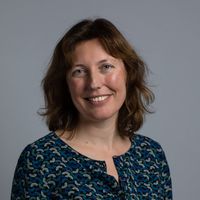
Department: Educational Sciences, University of Groningen, the Netherlands
Academic focus: learning through interaction, cultural diversity and inclusion in education, art-based pedagogy
My university website www.rug.nl/staff/m.i.deunk/ and twitter account: twitter.com/MarjoleinDeunk
Prof. Dr. Karsten Speck (UOL)
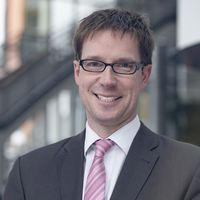
Affiliation: School of Educational and Social Sciences, University of Oldenburg
Academic Focus
- Research Methods
- Multiprofessional Cooperation
- School Absenteeism
- Cooperation Youth Welfare Services and Schools
- Participation and Service Learning
- Higher Education Research
- Research-based Learning
2 to 3.30 pm
Session 2: Theories and values of inclusion
Session outline: Theories and values of inclusion
This session will present and discuss overarching theoretical approaches to inclusion in order to establish a solid ground for our international workshop. The focus will be on the South African Ubuntu approach regarding inclusive values and the capability approach developed by Amartya Sen, which is well-known in the field of social sciences. The aim is to reach a common understanding of inclusive education by grounding it in the theory of justice and values. In preparation, we will distribute a text for reading which we will come back to in our session with the students.
-
 Theories and values of inclusion conceptual framework
Theories and values of inclusion conceptual framework
Prof. Nokhanyo Mdzanga (NMU)
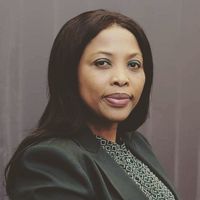
Nokhanyo Nomakhwezi Mdzanga is an Associate Professor and deputy dean in the Faculty of Education at Nelson Mandela University. Her area of expertise is in language education, in particular, multilingualism and the teaching of English to second language speakers and isiXhosa to third of fourth language speakers.
Prof. Dr. Till-Sebastian Idel (UOL)
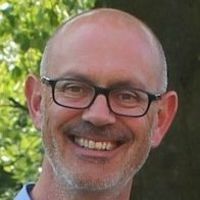
Professor for School Pedagogy and General Didactics
School of Educational and Social Sciences, Department of Educational Sciences, University of Oldenburg
The focus of my empirical research is on practices of teaching, school and classroom change in development processes in context with changing educational policies and especially in progressive schools, and the embedded professionalization of teachers. My research is based in theories of practice and theories of subjectivation. I’m using methods of qualitative research.
3.45 to 5.15 pm
Session 3: Evidence-based practice – practice-based evidence
Session outline: Evidence-based practice – practice-based evidence
How can inclusive education be implemented? What are the relevant results of actual scientific efforts? This session focuses on research and practice and their interconnections in the field of inclusion in South Africa and Germany. The main topics of the session are social justice and diversity as theoretical foundations for research projects in inclusive education in both countries. The Response to Intervention (RTI) will be presented as a framework of inclusion, research and evidence-based practice. This is an approach whose primary focus is on supporting students with special needs in learning, language and emotional-social development. In long-term research projects, e.g. Rügen Inclusive Model, effective measures could be evaluated. The session starts with an introduction followed by a presentation on the topic of inclusion in South Africa and Germany and on RTI. After this, there will be assignments for the students, and the session will be wrapped up by a discussion.
Prof. Mathabo Khau (NMU)
Mathabo Khau is an Associate Professor, Faculty of Education, Nelson Mandela University, Gqeberha (formerly Port Elizabeth), South Africa. She uses participatory visual research methodologies in addressing gender, sexuality, gender-based violence and HIV and AIDS in Education. She has authored several peer reviewed published articles and book chapters, and supervised Masters’ and Doctoral students to completion.
Prof. Dr. Ulrike-Marie Krause (UOL)
Affiliation: School of Educational and Social Sciences, Department of Educational Sciences, University of Oldenburg
Academic focus: empirical educational research at school and university; teacher education
Prof. Dr. Tanja Jungmann (UOL)
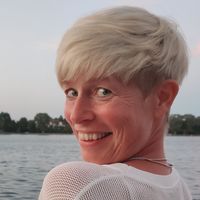
Affiliation: School of Educational and Social Sciences, Department of Special Needs Education and Rehabilitation, University of Oldenburg
Language and Communication and its special needs education under special consideration of inclusive educational processes
Academic Focus
- Professionalisation of kindergarten and school teachers in inclusive settings
- Evidence-based (early) prevention and intervention
- Diagnosis und developmental advancement of competencies in language, reading and writing competences (early literacy)
Prof. Dr. Clemens Hillenbrand (UOL)
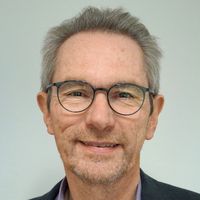
As a Senior Professor of Pedagogics and Didactics for Learning Disabilities in the Institute of Special Education and Rehabilitation (School of Educational and Social Sciences, University of Oldenburg) Clemens Hillenbrand is responsible for research and education in a wide range of themes concerning special and inclusive education. His interests are in Inclusive Education and Teacher Training für inclusive education, Concepts and Training for Improvement in Social and Emotional Skills as well as Evidence-based Learning Support and Prevention of Dropout.
Actual projects focus on “Teaching History in Inclusive Settings: A Blended Learning-Concept for Teacher Trainings KLUG” (Grant of Federal Ministry of Education and Research BMBF), the “Implementation of Inclusion in the Educational System of Iraq” (Grant of German Academic Exchange Service DAAD) and the development of a method to involve children and youth in the diagnostic process of social and emotional risks and competencies MesK (Grant of North Rhine-Westphalia). A starting project develops Open Educational Resources in teacher Education (Grant of Ministry of Research and Culture, Lower Saxony).
Completed research projects conducted e.g. a programme of teacher qualification for the implementation of inclusion in North Rhine-Westphalia (Grant North Rhine-Westphalia) and the evaluation of an adapted version of the Good Behavior Game in Germany (Grant of Körber Foundation, Hamburg).
5.30 to 6.30 pm
Closing session
Dr. Dik W. Maandag, University of Groningen, the Netherlands
Times according to Central European Time.
Day 2 (Friday 6 November): Multilingualism in the classroom
8.30 to 8.45 am
Introduction/Opening
Prof. Dr. Martin Butler, University of Oldenburg, Germany
8.45 to 10.15 am
Session 4: Multilingualism and social justice
Session outline: Multilingualism and social justice
Our workshop explores multilingualism in the classroom (and beyond) from a social justice-perspective, combining short input presentation and in-class group discussions. We will shed light on a) decolonial pedagogy as a way to criticize and overcome the discriminating potential of language and language policies; b) on the identity-shaping power of language in processes of inclusion and exclusion; and c) on the consequences of these insights for the role of teachers and the design of curricula. Being introduced to these issues through mini presentations by the workshop conveners, students will examine these topics in closer detail in group work sessions framed by guiding questions and concerns. On the basis of theses activities, students will prepare an input statement for the closing session at the end of that day.
Prof. Nokhanyo Mdzanga (NMU)

Nokhanyo Nomakhwezi Mdzanga is an Associate Professor and deputy dean in the Faculty of Education at Nelson Mandela University. Her area of expertise is in language education, in particular, multilingualism and the teaching of English to second language speakers and isiXhosa to third of fourth language speakers.
Dr. Heloise Sathorar (NMU)

Dr. Heloise Sathorar is the Head of Department for Secondary School Education (PGCE and BEd SP & FET) in the Faculty of Education at the Nelson Mandela University. Her research interest includes critical pedagogy, teacher education, higher education and critical community engagement. She has also done research in Accounting Education, and Entrepreneurship Education. Her most recent work is: Decolonizing the colonized mindset: Reflecting on lecturer dispositions to decolonize teacher education (JOE).
Prof. Dr. Martin Butler (UOL)

Martin Butler is Professor of American Literary and Cultural Studies at the University of Oldenburg, Germany. His research centers on popular culture and its mobilities, with a particular focus on popular music in a range of different historical and regional contexts. He is also interested in cultural representations of migration and diversity and in cultures of participation, specifically in new media environments.
Dr. Muki Moeng (NMU)
10.30 to noon
Session 5: Exploring strategies for enhanced teaching and learning in multilingual contexts
Session outline: Exploring strategies for enhanced teaching and learning in multilingual contexts
Objectives
This workshop aims to enable participants to explore strategies that they could implement in their multilingual classes to facilitate teaching and learning.
It will have the following main objectives:
- to provide an overview of the evolution and the guiding principles of multilingual and plurilingual teaching and learning
- to illustrate ways in which translanguaging and code-switching can be used to adopt a “plurilingual stance” and thus establish change and promote social justice in TESOL classrooms
- to explore how issues of diversity in multilingual classes could be promoted through arts based approaches such as poetry, drama-in-education, music and dance.
Description
Initially, a short presentation on the underlying principles of multilingualism and plurilingualism will be the starting point for a broader exploration of the topic. Participants will critically evaluate the viability of strategies such as translanguaging by focusing on a variety of teaching examples and materials. Working with practical examples and samples of work is supposed to encourage and facilitate reflective practice.
As the workshop progresses, practical examples of diversity education will be presented and participants will try their hands at a variety of creative approaches. Above all, participants` individual experiences of learning and teaching in diverse contexts will serve as an inspiration for creative literary pieces using their full linguistic repertoire.
Finally, a plenary session will serve as a forum for the presentation (of creative writing products) and a critical discussion of multilingual resp. plurilingual approaches in general. Both lecturers will provide insights into teaching experiences in academic and school contexts in South Africa and Germany.
Organisation
Apart from plenary sessions, participants will work in small groups. PowerPoint presentations and short video clips provide structure and will be made available afterwards. Comments, suggestions and individual products can be shared via the chat function and the forum.
Dr. Sylke Bakker (UOL)
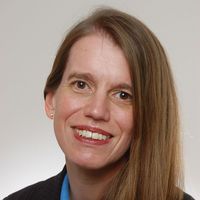
Teaching Fellow at the Department of English and American Studies, University of Oldenburg.
My academic focus lies on EFL teaching, particularly against the backdrop of evidence-based teaching and learning. Another field of interest is that of diversity education and pluralistic approaches in more general terms. In my teaching, I make an effort to put relevant literature as well as current research to the test by focusing on the viability of specific content, tasks or methods. Student involvement, critical discourse and feedback are indispensible when pursuing this joint goal.
Dr. Logamurthie Athiemoolam (NMU)
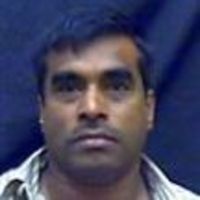
Professor Logamurthie Athiemoolam is an Associate Professor in the Faculty of Education at the Nelson Mandela University in Gqeberha (formerly Port Elizabeth), South Africa, where he prepares pre-service teachers to teach English at home and first additional language levels. He also presents education modules focusing on issues and challenges in South African education to undergraduate students and language teaching and language across the curriculum modules to postgraduate students. In the presentation of his modules he uses drama pedagogy as a strategy. At postgraduate level he has already supervised a number of Honours, Masters and Doctoral students with their research projects in the fields of language and general education, to completion. His fields of research are language teaching, education, drama-in-education and diversity pedagogy.
12.30 to 2 pm
Session 6: Multilingualism in children with neurodevelopmental challenges
Session outline: Multilingualism in children with neurodevelopmental challenges
The session offers the ICF and an ecosystemic approach as conceptual frameworks for factors shaping multilingual education in children with neurodevelopmental challenges. We will draw on international research to provide background information on the topic and will subsequently present current issues in practice and research in South Africa as well as Germany. Together with the group, we would like to discuss the contents of the presentation as well as two research papers. The session will be concluded with an outlook on future directions in research and practice.
Prof. Dr. Tanja Jungmann (UOL)
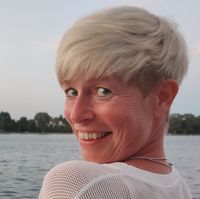
Affiliation: School of Educational and Social Sciences, Department of Special Needs Education and Rehabilitation, University of Oldenburg
Language and Communication and its special needs education under special consideration of inclusive educational processes
Academic Focus
- Professionalisation of kindergarten and school teachers in inclusive settings
- Evidence-based (early) prevention and intervention
- Diagnosis und developmental advancement of competencies in language, reading and writing competences (early literacy)
Prof. Dr. Ulla Licandro (UOL)
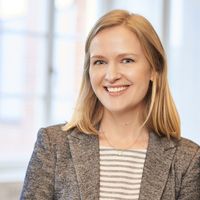
Department of Special Needs Education and Rehabilitation, University of Oldenburg.
My research is focused on how multilingual children with and without language impairments acquire and use language. Furthermore, I am interested in how interactions with caregivers, teachers and peers shape these processes and in finding and applying strategies to support children to become successful communicators in the classroom and beyond.
Prof. Nokhanyo Mdzanga (NMU)

Nokhanyo Nomakhwezi Mdzanga is an Associate Professor and deputy dean in the Faculty of Education at Nelson Mandela University. Her area of expertise is in language education, in particular, multilingualism and the teaching of English to second language speakers and isiXhosa to third of fourth language speakers.
2.15 to 3 pm
Closing session
Prof. Nokhanyo Mdzanga, Nelson Mandela University, South Africa
Prof. Dr. Marije Michel, University of Groningen, the Netherlands
Future Perspectives: Tina Grummel, University of Oldenburg, Germany
Times according to Central European Time.



